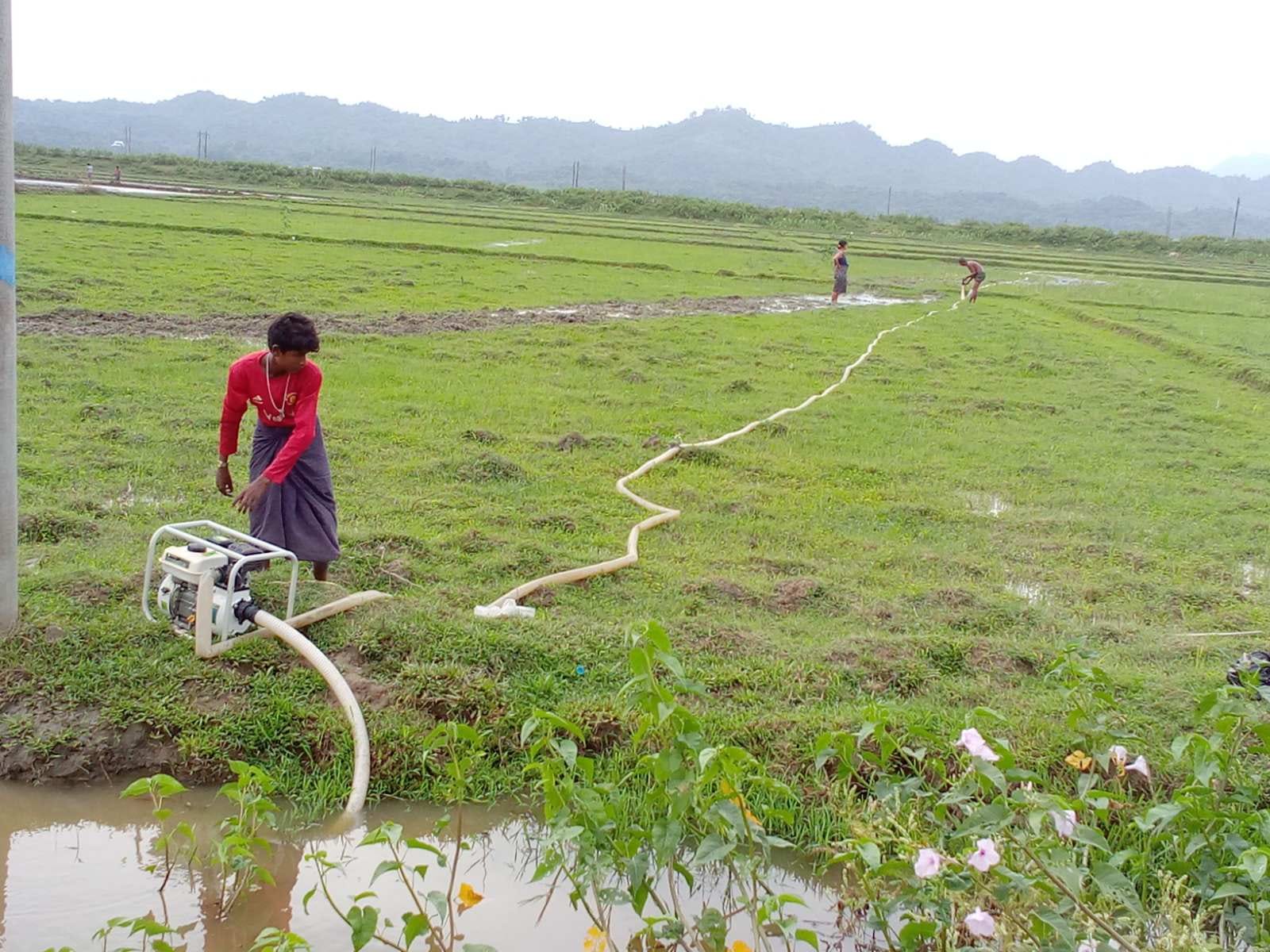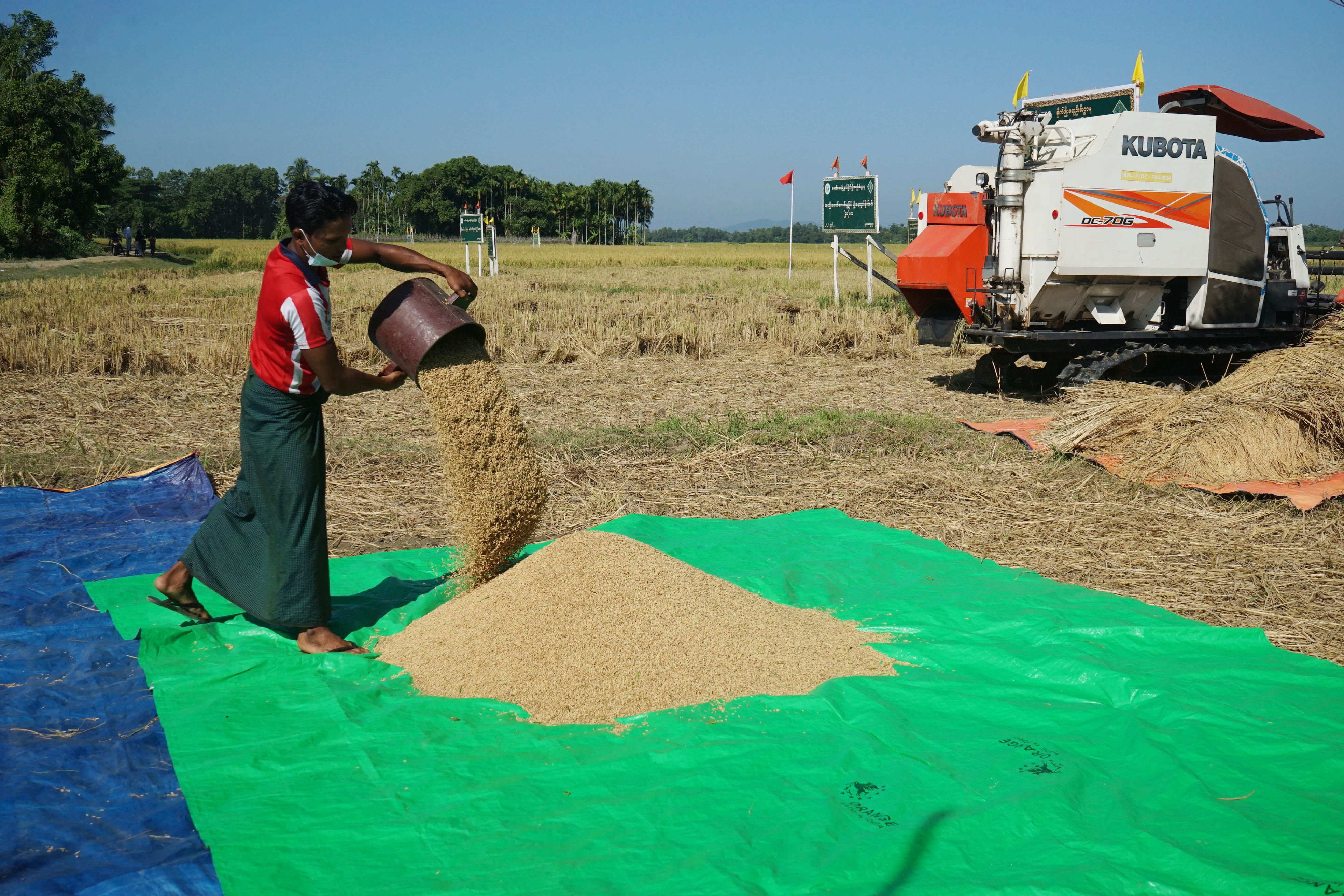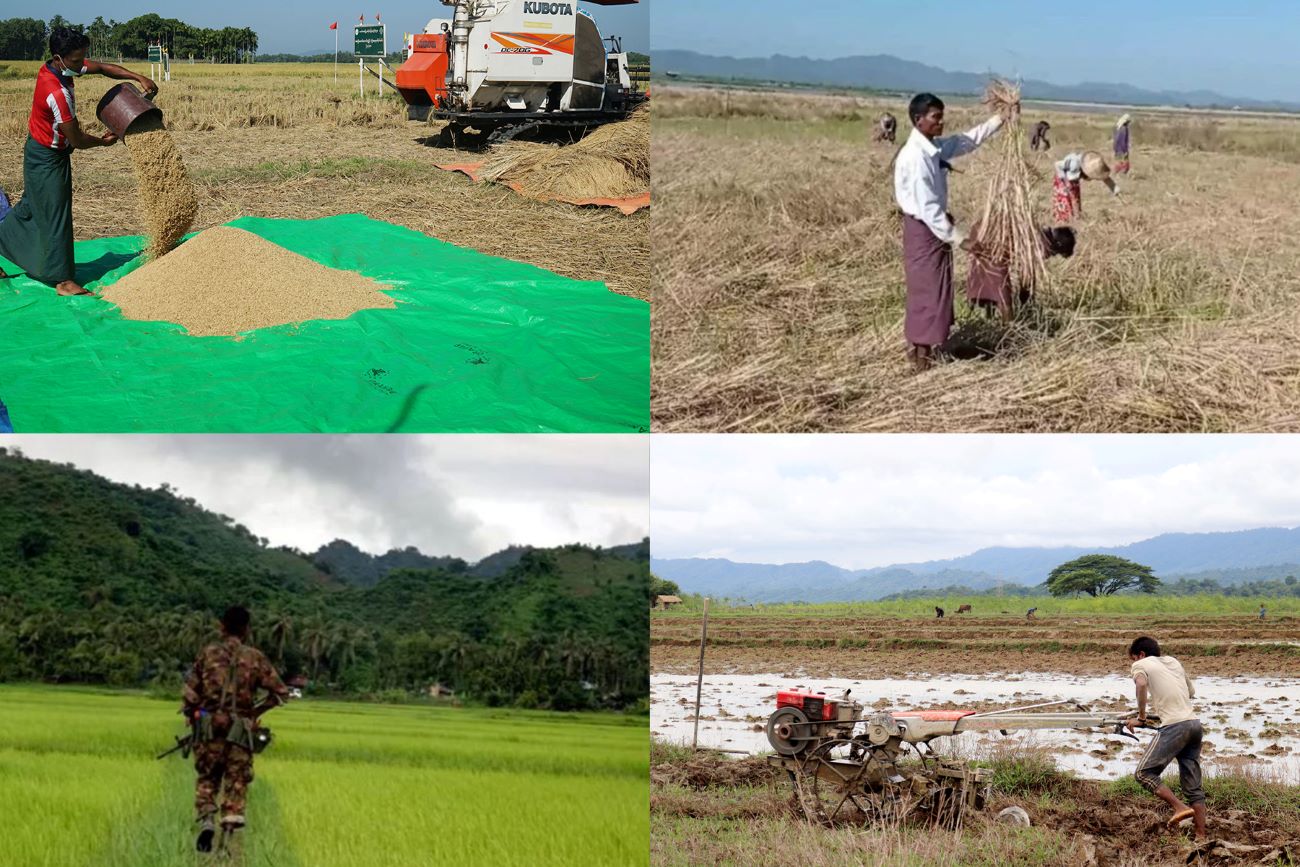CNI News
16 Dec 2022
Monsoon paddy yields in Rakhine State have dropped by 40 percent this year, farmers in the state told the CNI.
They blamed late monsoon, storms, shortages of inputs and resumption of fighting for the fallen paddy yields this year.
Farmer U Aung Kyaw Mya told the CNI, "Paddy yields in Rakhine State dropped significantly this year. When paddy needed a lot of water in June and July, monsoon rains halted for 40 days and had serious impacts on paddy yields. Emata paddy prices currently stand at MMK 1 million per 100 baskets while Pawhsan paddy reach MMK 1.3 million per 100 baskets. As paddy yields dropped, farmers suffered losses for their inputs. Farmers suffered significant losses."
As farmers in Rakhine State have no other livelihood than farming despite suffering losses and there are no factories and livestock farms, they have no other choice than paddy growing. So, farmers will face challenges for coming years, he added.

Supply water to paddy fields.
Rakhine farmers reduced paddy acreage when they grew monsoon paddy but they hoped to harvest about 50 baskets of paddy per acre.
However, per-acre paddy yields dropped from about 60 to 80 baskets last year to only about 40 baskets this year, farmers from Rakhine State told the CNI.
Other major reasons for falling per-acre paddy yields are rising prices of diesel and fertilizer, whose prices rose from MMK 50,000 per bag to MMK 100,000 per bag this year.
As monsoon paddy yields in Rakhine State have dropped year by year, farmers have started to worried about their livelihood, Chairman U Kyaw Zan of All Rakhine State Peasant Union told the CNI.
He said, "I am worried about the situation. Total acreage as well as per-acre yields have dropped. Paddy yields in the entire country have dropped. Without any technical assistance, the quality of paddy has also fallen. What we are talking about is very simple. The agriculture ministry is also responsible for the livelihood of farmers. They need investment, inputs, seeds and water. The government needs to offer assistance for the needs. Then, they need technical assistance and market guarantees. Farmers have fallen victim to exploitation of brokers and merchants. When paddy prices hit MMK 1 million per 100 baskets, they purchased paddy from farmers at MMK 700,000 per 100 baskets. Relevant government agencies are required to provide assistance for the three sectors.

Winnowing paddy.
Paddy yields are likely to fall further in the upcoming year if instabilities and high input prices persist. Paddy yields can increase only when instabilities stop and input prices drop, according to farmers.
Rakhine state has about 1.2 million acres of paddy field but farmers were able to grow paddy on about 900,000 acres of land. And about 100,000 acres of paddy were also destroyed by a storm. Total paddy yields of Rakhine State cannot be determined at present as some farmers have not harvested their paddy, according to the peasant union.




